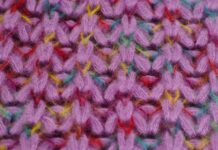Allergic sinusitis is a prevalent condition that affects millions of people worldwide. It is a type of sinusitis that occurs when the sinus cavities become inflamed due to an allergic reaction. The condition is characterized by symptoms such as nasal congestion, runny nose, sneezing, and facial pain or pressure. Allergic sinusitis can significantly impact an individual’s quality of life, leading to discomfort and disruptions in daily activities.
When a person with allergic sinusitis comes into contact with an allergen, such as pollen, dust mites, pet dander, or mold spores, their immune system reacts abnormally. The immune system mistakenly identifies these harmless substances as harmful invaders and releases chemicals, including histamines, to combat the perceived threat. These chemicals cause the lining of the sinus cavities to become inflamed, leading to the characteristic symptoms of allergic sinusitis.
The primary symptom of allergic sinusitis is nasal congestion. The inflamed sinus tissues can block the nasal passages, leading to difficulty breathing through the nose. This congestion can also cause a feeling of pressure or fullness in the face, especially around the eyes, cheeks, and forehead. Additionally, individuals with allergic sinusitis often experience a runny nose, as the inflammation triggers an increased production of mucus to flush out the allergens.
Sneezing is another common symptom of allergic sinusitis. The body’s attempt to expel the irritants and allergens from the nasal passages can result in repeated sneezing episodes. The sneezing is often accompanied by an itchy or tickling sensation in the nose.
Facial pain or pressure is a bothersome symptom of allergic sinusitis. The inflammation and congestion in the sinus cavities can cause discomfort or a feeling of heaviness in the face. The pain or pressure may worsen when bending forward or lying down.
In some cases, allergic sinusitis can lead to complications such as sinus infections. The inflamed and congested sinuses create an environment conducive to bacterial growth, increasing the risk of developing a secondary bacterial infection. Sinus infections can result in symptoms such as thick yellow or green nasal discharge, fever, and worsening facial pain.
The duration and severity of allergic sinusitis can vary from person to person. Some individuals may experience only mild symptoms, while others may have more persistent and severe reactions to allergens. Allergic sinusitis can be seasonal, occurring during specific times of the year when certain allergens are prevalent, or it can be perennial, persisting throughout the year due to exposure to indoor allergens.
Diagnosing allergic sinusitis typically involves a comprehensive evaluation of the individual’s medical history, symptoms, and physical examination. The doctor may inquire about any known allergies and exposure to potential allergens. In some cases, allergy testing may be recommended to identify specific allergens that trigger the sinusitis. Skin tests and blood tests are commonly used to determine the presence of allergic reactions to various substances.
The management of allergic sinusitis involves both symptomatic relief and allergen avoidance. Nasal decongestants, antihistamines, and nasal corticosteroids are often prescribed to alleviate nasal congestion and reduce inflammation in the sinuses. These medications can provide relief from the symptoms of allergic sinusitis, but they do not address the underlying cause—the allergic reaction.
To address the root cause of allergic sinusitis, allergen avoidance strategies are crucial. Identifying and minimizing exposure to known allergens can help prevent or reduce the frequency and severity of allergic reactions. For example, individuals allergic to pollen should avoid outdoor activities during peak pollen seasons and keep windows closed to minimize pollen exposure indoors.
For those with indoor allergies, such as dust mites or pet dander, taking measures to reduce allergen levels in the home can be beneficial. This may include using allergen-proof mattress and pillow covers, regularly washing bedding in hot water, and using air purifiers to filter out airborne allergens.
In cases where allergen avoidance and medications do not provide sufficient relief, allergen immunotherapy may be considered. Immunotherapy, commonly known as allergy shots, involves administering gradually increasing doses of allergens to desensitize the immune system over time. This treatment aims to reduce the body’s sensitivity to allergens, thereby decreasing the severity of allergic reactions.
In addition to medical management, self-care measures can also help alleviate symptoms of allergic sinusitis. Nasal irrigation with saline solution can help flush out mucus and allergens from the nasal passages, providing relief from congestion and promoting sinus health. Using a humidifier in the home can add moisture to the air and prevent the nasal passages from drying out, reducing irritation.
It is essential for individuals with allergic sinusitis to be proactive in managing their condition and seeking appropriate medical care. Left untreated or poorly managed, allergic sinusitis can lead to chronic inflammation and recurrent infections, which may require more aggressive treatment.
Moreover, allergic sinusitis can significantly impact a person’s daily life, affecting their sleep, work productivity, and overall well-being. Seeking guidance from healthcare professionals, such as allergists or otolaryngologists, can help individuals with allergic sinusitis develop personalized management plans and take control of their symptoms.
The management of allergic sinusitis is a collaborative effort between healthcare providers and patients. By implementing a combination of medical treatment, allergen avoidance, and self-care measures, individuals with allergic sinusitis can find relief from their symptoms and improve their quality of life.
Furthermore, education about allergen triggers and proactive measures to minimize exposure to these allergens are vital components of successful allergic sinusitis management. Creating an allergen-free environment at home and making lifestyle adjustments to avoid known allergens can help individuals with allergic sinusitis lead a healthier and more comfortable life.
In conclusion, allergic sinusitis is a prevalent condition characterized by inflammation of the sinus cavities due to an allergic reaction. Nasal congestion, runny nose, sneezing, and facial pain or pressure are common symptoms of allergic sinusitis. The condition can significantly impact an individual’s quality of life, leading to discomfort and disruptions in daily activities.
Diagnosis involves a thorough evaluation of the individual’s medical history, symptoms, and physical examination. Allergy testing may be conducted to identify specific allergens triggering the sinusitis. Management of allergic sinusitis focuses on symptomatic relief, allergen avoidance, and, in some cases, allergen immunotherapy.
By taking proactive measures to minimize allergen exposure and working with healthcare professionals to develop personalized management plans, individuals with allergic sinusitis can find relief from their symptoms and improve their overall well-being. Education and awareness about allergen triggers are essential components of successful allergic sinusitis management, enabling individuals to take control of their condition and lead a healthier and more comfortable life.
Inflammation of Sinus Cavities:
Allergic sinusitis is characterized by the inflammation of the sinus cavities due to an allergic reaction, leading to symptoms such as nasal congestion and facial pain or pressure.
Allergen Triggers:
The condition is triggered by exposure to allergens such as pollen, dust mites, pet dander, or mold spores, which prompt the immune system to release chemicals that cause sinus inflammation.
Nasal Congestion and Runny Nose:
Individuals with allergic sinusitis experience nasal congestion and a runny nose as the sinus cavities become inflamed, leading to difficulty breathing through the nose and increased mucus production.
Sneezing and Facial Pain:
Sneezing is a common symptom of allergic sinusitis, as the body tries to expel irritants and allergens from the nasal passages. Additionally, individuals may experience facial pain or pressure, especially around the eyes, cheeks, and forehead.
Allergen Avoidance and Immunotherapy:
Management of allergic sinusitis involves allergen avoidance strategies and medical treatments such as allergen immunotherapy, which aims to desensitize the immune system and reduce the severity of allergic reactions.
Allergic sinusitis, also known as allergic rhinosinusitis, is a common condition that affects millions of people worldwide. It occurs when the sinus cavities become inflamed and swollen due to an allergic reaction to specific allergens. The sinuses are air-filled spaces located behind the forehead, cheeks, nose, and eyes. When the sinus lining becomes irritated and inflamed, it can lead to a variety of uncomfortable symptoms.
Allergies occur when the body’s immune system overreacts to substances that are typically harmless, such as pollen, pet dander, dust mites, mold spores, and certain foods. In the case of allergic sinusitis, exposure to these allergens triggers an immune response, causing the release of histamines and other chemicals. These substances cause the blood vessels in the sinus lining to become dilated and increase mucus production. As a result, the sinuses become congested and inflamed, leading to the characteristic symptoms of allergic sinusitis.
Individuals with allergic sinusitis often experience nasal congestion, which is the feeling of a stuffy or blocked nose. The congestion can be particularly bothersome, making it difficult to breathe through the nose. Nasal congestion can also lead to mouth breathing, which may cause dry mouth and throat irritation.
Another common symptom of allergic sinusitis is a runny nose, also known as rhinorrhea. The increased production of mucus is the body’s attempt to flush out the allergens from the nasal passages. The nasal discharge may be clear and watery or thick and yellowish if a secondary infection develops.
Sneezing is another hallmark symptom of allergic sinusitis. The irritation of the nasal lining due to allergen exposure can trigger repeated sneezing episodes. Sneezing is the body’s way of forcefully expelling irritants from the nose.
Facial pain or pressure is a bothersome symptom that often accompanies allergic sinusitis. The inflammation in the sinuses can create a feeling of fullness or discomfort in the face, particularly around the eyes, cheeks, and forehead. The pain or pressure may worsen when bending forward or lying down.
In addition to the common symptoms mentioned above, some individuals with allergic sinusitis may experience other symptoms such as headache, fatigue, cough, and a reduced sense of smell (hyposmia). These symptoms can vary in severity from mild to severe and may be more pronounced during certain seasons or when exposed to specific allergens.
Allergic sinusitis can be categorized into two types: seasonal and perennial. Seasonal allergic sinusitis, also known as hay fever, occurs during specific times of the year when certain allergens are prevalent. Common seasonal allergens include tree pollen in the spring, grass pollen in the summer, and ragweed pollen in the fall. Perennial allergic sinusitis, on the other hand, persists throughout the year and is usually caused by indoor allergens such as dust mites, pet dander, mold spores, and cockroach allergens.
Diagnosing allergic sinusitis involves a thorough evaluation of the individual’s medical history, symptoms, and physical examination. The doctor may inquire about any known allergies, exposure to potential allergens, and the duration and pattern of symptoms. In some cases, allergy testing may be recommended to identify specific allergens that trigger the sinusitis. Skin tests and blood tests are commonly used to determine the presence of allergic reactions to various substances.
The management of allergic sinusitis focuses on both symptomatic relief and addressing the underlying cause—the allergic reaction. Nasal decongestants, antihistamines, and nasal corticosteroids are often prescribed to alleviate nasal congestion, reduce inflammation in the sinuses, and control allergic reactions. These medications can provide temporary relief from the symptoms of allergic sinusitis and improve the individual’s quality of life.
However, it is important to note that while these medications can effectively manage the symptoms, they do not provide a cure for allergic sinusitis. As long as the individual is exposed to the allergens, the symptoms are likely to recur.
To address the root cause of allergic sinusitis, allergen avoidance strategies are crucial. Identifying and minimizing exposure to known allergens can help prevent or reduce the frequency and severity of allergic reactions. For example, individuals allergic to pollen should avoid outdoor activities during peak pollen seasons, keep windows closed to minimize pollen exposure indoors, and use air purifiers with HEPA filters to reduce airborne allergens.
For those with indoor allergies, such as dust mites or pet dander, taking measures to reduce allergen levels in the home can be beneficial. This may include using allergen-proof mattress and pillow covers, regularly washing bedding in hot water, and using air purifiers to filter out airborne allergens.
In cases where allergen avoidance and medications do not provide sufficient relief, allergen immunotherapy may be considered. Allergen immunotherapy, commonly known as allergy shots, involves administering gradually increasing doses of allergens to desensitize the immune system over time. This treatment aims to reduce the body’s sensitivity to allergens, thereby decreasing the severity of allergic reactions.
Immunotherapy is typically recommended for individuals with severe allergies, poorly controlled symptoms, or those who wish to achieve long-term relief from allergic sinusitis. The treatment requires regular visits to the allergist or immunologist and may take several months to a few years to complete.
In addition to medical management, self-care measures can also help alleviate symptoms of allergic sinusitis. Nasal irrigation with saline solution can help flush out mucus and allergens from the nasal passages, providing relief from congestion and promoting sinus health. Using a humidifier in the home can add moisture to the air and prevent the nasal passages from drying out, reducing irritation.
It is essential for individuals with allergic sinusitis to be proactive in managing their condition and seeking appropriate medical care. Left untreated or poorly managed, allergic sinusitis can lead to chronic inflammation and recurrent infections, which may require more aggressive treatment.
Moreover, allergic sinusitis can significantly impact a person’s daily life, affecting their sleep, work productivity, and overall well-being. Seeking guidance from healthcare professionals, such as allergists or otolaryngologists, can help individuals with allergic sinusitis develop personalized management plans and take control of their symptoms.
In conclusion, allergic sinusitis is a prevalent condition characterized by inflammation of the sinus cavities due to an allergic reaction to specific allergens. Nasal congestion, runny nose, sneezing, and facial pain or pressure are common symptoms of allergic sinusitis. The condition can significantly impact an individual’s quality of life, leading to discomfort and disruptions in daily activities.
Diagnosis involves a thorough evaluation of the individual’s medical history, symptoms, and physical examination. Allergy testing may be conducted to identify specific allergens triggering the sinusitis. Management of allergic sinusitis focuses on symptomatic relief, allergen avoidance, and, in some cases, allergen immunotherapy.
By taking proactive measures to minimize allergen exposure and working with healthcare professionals to develop personalized management plans, individuals with allergic sinusitis can find relief from their symptoms and improve their overall well-being. Education and awareness about allergen triggers are essential components of successful allergic sinusitis management, enabling individuals to take control of their condition and lead a healthier and more comfortable life.


















